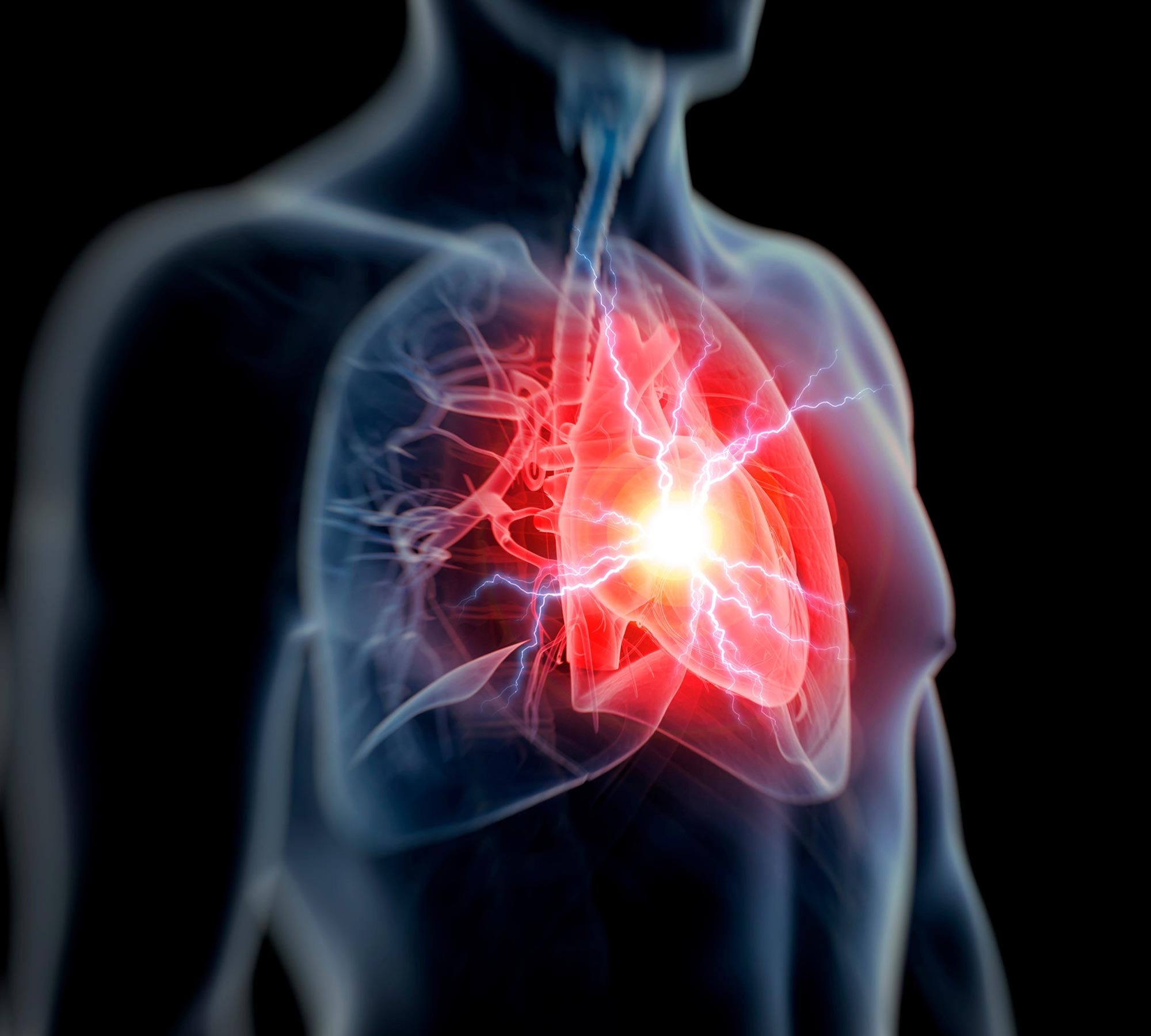New study shows heart attack increase has been most prominent in young adults, especially those ages 25-44.
Researchers at the Smidt Heart Institute at Cedars-Sinai conducted a new data analysis and found that deaths from heart attacks rose significantly during pandemic surges, including the COVID-19 Omicron surges, overall reversing a heart-healthier pre-pandemic trend.
“There is something very different about how this virus affects the cardiac risks.” — Susan Cheng, MD, MPH
Before the COVID-19 pandemic, heart attacks were the leading cause of death worldwide but were steadily on the decline. However, the new study reveals that heart attack death rates took a sharp turn and increased for all age groups during the pandemic. The study was recently published in the peer-reviewed Journal of Medical Virology.
Spikes in heart attack deaths have closely tracked with surges of SARS-CoV-2 infections. This was true even during the presumed less-severe Omicron phase of the COVID-19 pandemic. Moreover, the data showed the increase was most significant among people ages 25-44. Individuals in this age range are not usually considered at high risk for heart attacks.
“The dramatic rise in heart attacks during the pandemic has reversed what was a prior decadelong steady improvement in cardiac deaths,” said Yee Hui Yeo, MD, first author of the study and a Cedars-Sinai physician-scientist. “We are still learning the many ways by which COVID-19 affects the body, regardless of age, gender, ethnicity or race.”

New data analysis reveals that deaths from heart attacks rose significantly during pandemic surges, including the COVID-19 Omicron surges.
Using data from the Centers for Disease Control and Prevention’s National Vital Statistics System, the Cedars-Sinai researchers identified 1,522,699 deaths from heart attacks—medically called acute myocardial infarctions—between April 1, 2012, and March 31, 2022.
Investigators then compared age-related mortality rates between pre-pandemic and pandemic periods, as well as demographic groups and regions.
Key findings from the study include:
- In the year before the pandemic, there were 143,787 heart attack deaths; within the first year of the pandemic, this number had increased by 14% to 164,096.
- The excess in acute myocardial infarction-associated mortality has persisted throughout the pandemic, even during the most recent period marked by a surge of the presumed less-virulent Omicron variant.
- Researchers found that although acute myocardial infarction deaths during the pandemic increased across all age groups, the relative rise was most significant for the youngest group, ages 25 to 44.
- By the second year of the pandemic, the “observed” compared to “predicted” rates of heart attack death had increased by 29.9% for adults ages 25-44, by 19.6% for adults ages 45-64, and by 13.7% for adults age 65 and older.
“There are several potential explanations for the rapid rise in cardiac deaths in patients with COVID-19, yet still many unanswered questions,” said Yeo. “Importantly, our results highlight disparities in mortality that have emerged from the COVID-19 pandemic and that are persisting even through the Omicron era.”
The possible explanations, Yeo said, include that COVID-19 may trigger or accelerate the presentation of preexisting coronary artery disease, even in younger adults.
Reasons for the spike in heart-related conditions could also be related to psychological and social challenges associated with the pandemic, including job loss and other financial pressures that can cause acute or chronic stress leading to cardiac disease.
The research team members say they have long known that infections such as the flu can increase the risk for heart disease and heart attack, but the sharp rise in heart attack deaths is like nothing seen before.
“There is something very different about how this virus affects the cardiac risks,” said Susan Cheng, MD, MPH, director of the Institute for Research on Healthy Aging in the Department of Cardiology at the Smidt Heart Institute and senior and co-corresponding author of the study. “The difference is likely due to a combination of stress and inflammation, arising from predisposing factors and the way this virus biologically interacts with the cardiovascular system.”
Yeo, Cheng, and the broader Smidt Heart Institute team hope that greater awareness and more research will expand the medical community’s ability to manage and mitigate these risks.






Recommended Comments
There are no comments to display.
Join the conversation
You can post now and register later. If you have an account, sign in now to post with your account.
Note: Your post will require moderator approval before it will be visible.